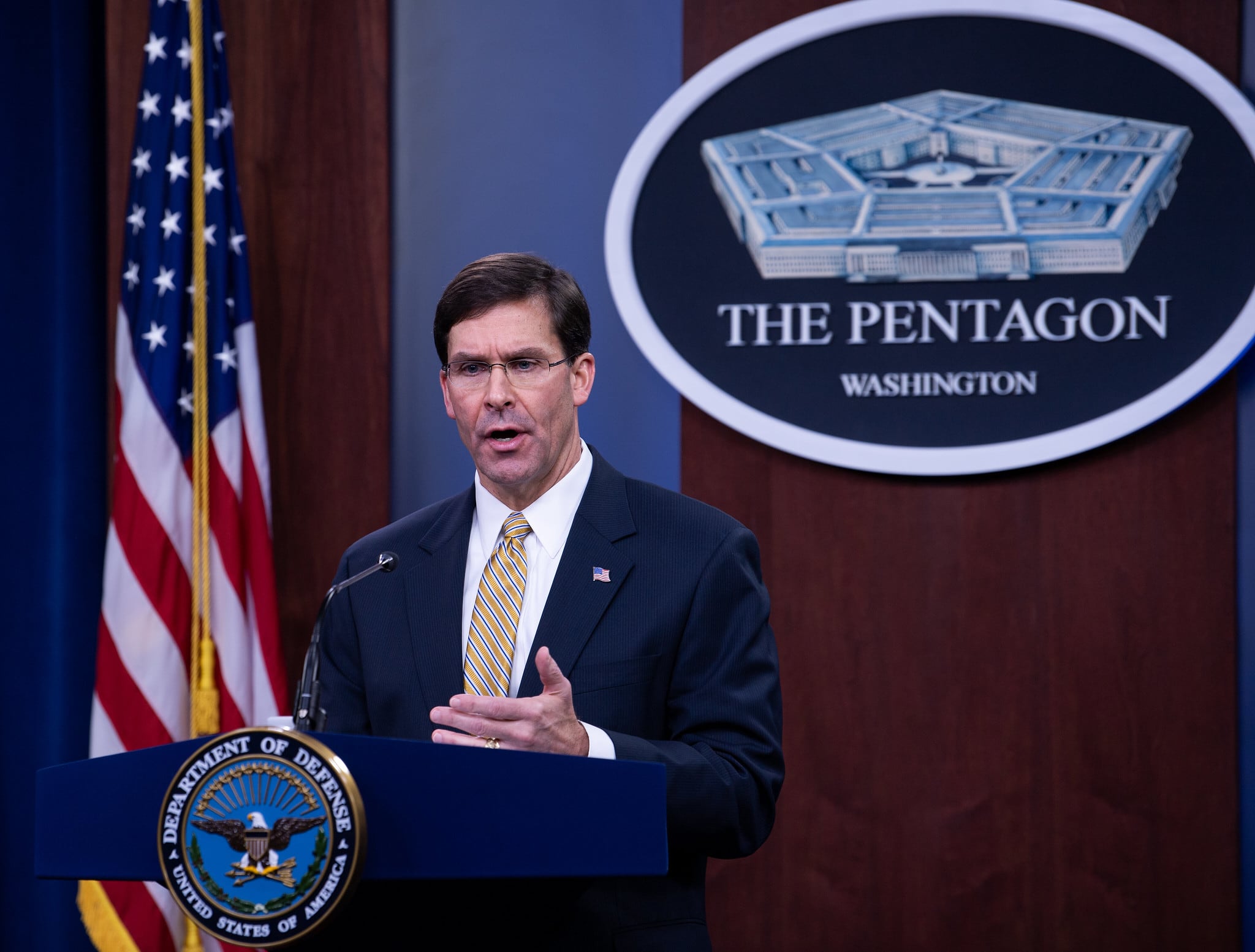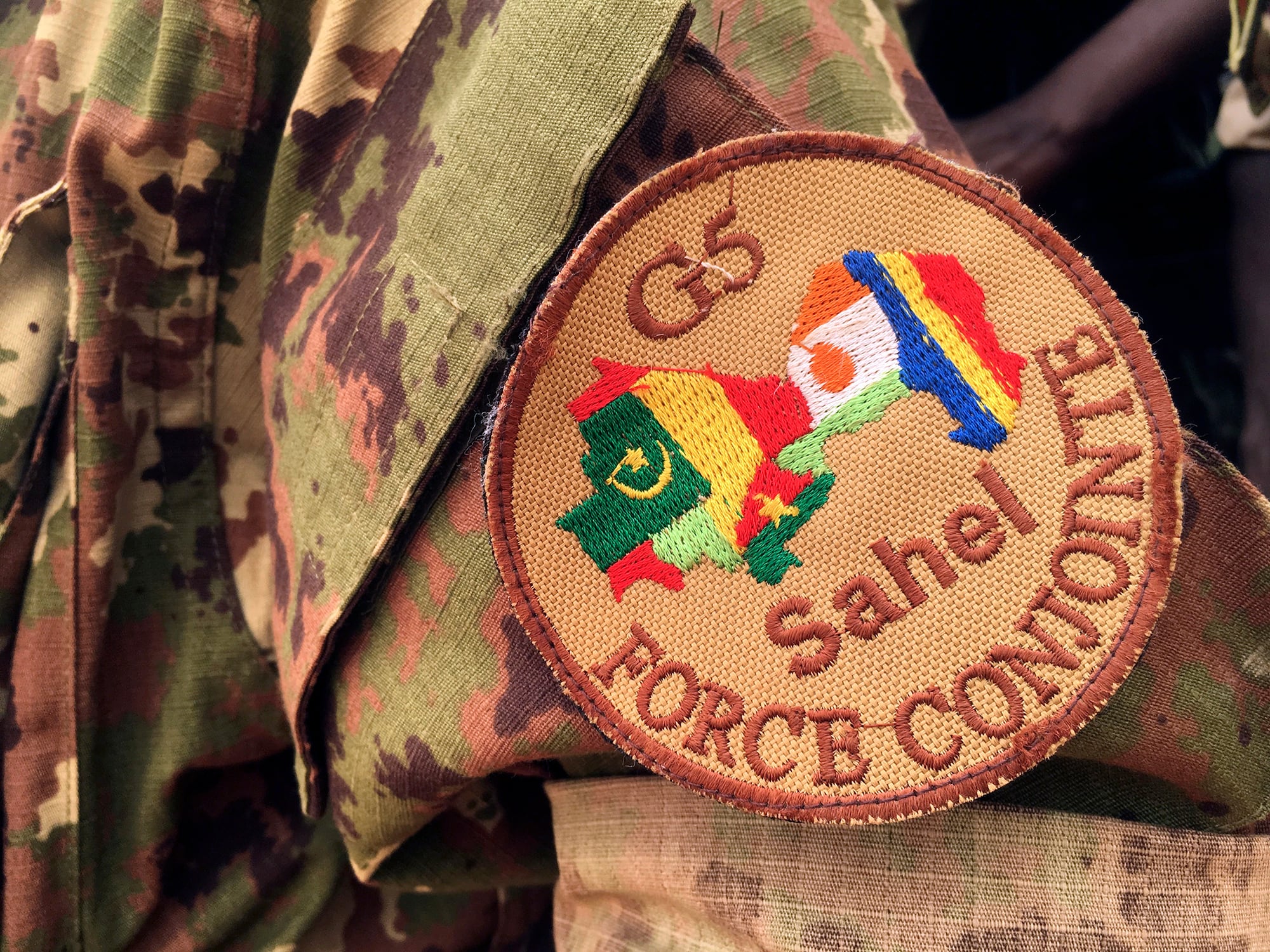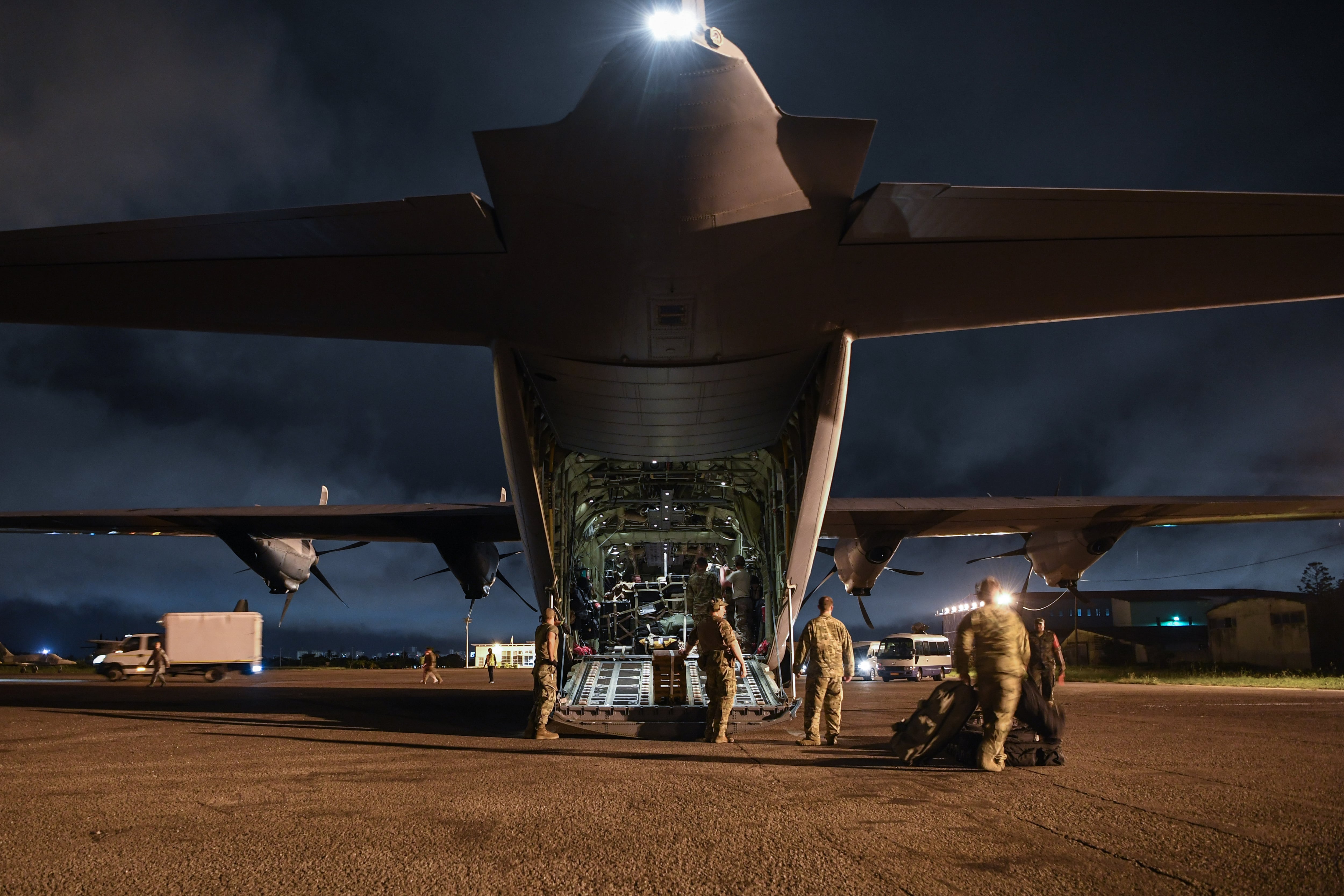Secretary of Defense Mark Esper told reporters at the Pentagon Thursday that the U.S. military would not conduct a full troop withdrawal from Africa, though an ongoing review could result in troop reductions.
Lawmakers and national security experts have expressed concern over the potential reduction of U.S. troops from the region following an al-Shabab attack on the Manda Bay, Kenya, base that killed three Americans, among them a U.S. soldier.
The Pentagon is amidst a review of the U.S. troop posture across the globe as military planners look for avenues to shore up resources and forces to address rising near-peer threats like Russia and China, and to better align policy with the National Defense Strategy.
“I know the inclination is whenever someone says ‘review,’ the word that automatically pops up in their head is ‘reduction,’” Esper told reporters. “It is a rebalancing.”
“In some cases we will increase, in some cases we won’t change , and in some cases we will decrease,” Esper said.
In the U.S. Africa Command theater of operations, Esper hinted the U.S. may increase its force posture in areas that address great power competition with less of a focus on counterterrorism operations.
RELATED

Esper told reporters Thursday that no final decisions have been made regarding ongoing reviews and rebalancing of U.S. troops across the globe.
French Minister of Armed Forces Florence Parly told reporters during a joint press briefing at the Pentagon Monday, that U.S. assistance in West Africa and the Sahel was critical. France has nearly 4,000 troops helping combat militant groups across Mali, Niger and Burkina Faso as part of Operation Barkhane.
“We actually thank the United States for all the support it has been providing to our operations for the past seven years,” Parly said Monday.
“But I had the opportunity to tell, again, to mention again that the U.S. support is critical to our operations and that its reduction would severely limit our effectiveness against terrorists,” she said.
Esper has oft said his primary goal is implementing the National Defense Strategy and addressing rising near-peer competitors.
“As I look at that strategy, my aim is to free up time, money and manpower around the globe, where we currently are, so that I could direct it toward either that region or, secondly, return forces to the United States to prepare to become more ready, to improve their readiness,” Esper said Monday.
RELATED

In a prepared statement before testifying at the Senate Armed Services Committee on Thursday, AFRICOM commander Gen. Stephen J. Townsend said violent extremist group activity in West Africa had increased 250 percent since 2018.
“The position of the Department of Defense is that the Europeans need to step up and do more in the Sahel to help the French. The French are calling on Europe to step up and do more. I absolutely think that is the right thing to do," Townsend told lawmakers Thursday.
“But as we see the violent extremists advancing, if we were to withdraw support from the French precipitously, then that would not go in a good direction. So I think, what we have to do, is we’ve got to synchronize our support and the removal of support, if we decide to do that, with the arrival of European support," the AFRICOM commander said.
U.S. forces in Africa provide French forces support, including airlift and air refueling for French fighter aircraft — both capabilities that NATO allies could also provide, Townsend said. However, he added European allies don’t have the ability to provide “more technical-types of support" like the U.S. does.
“We do some technical intelligence-type of support that is fairly exquisite, and there’s not a lot of countries that can do that at that same level. But they can mitigate a lot of the support that we provide,” Townsend said.
As of now, Townsend said that AFRICOM has adequate resources to conduct its mission with one exception: intelligence, surveillance, and reconnaissance (ISR) operations. In November, AFRICOM announced that Nigerien Air Base 201 in Niger was operational and that ISR operations were being conducted out of the base.
Additionally, Townsend told senators Thursday that he believed the Pentagon review could ultimately reduce some of the tasks and missions within AFRICOM, and would alter some of those responsibilities as well.
“I think in the past maybe we’ve been able to pay less attention to Africa and it be OK for America," Townsend said. "I don’t believe that’s the case for the future.”
Shawn Snow is the senior reporter for Marine Corps Times and a Marine Corps veteran.









